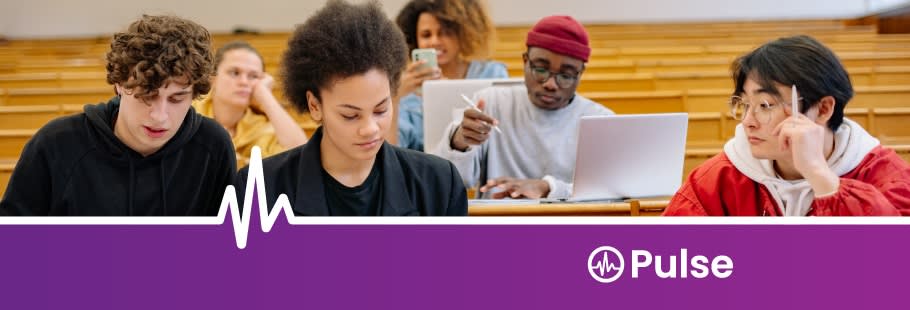
Back to Campus in January? – A (Quick) Postgraduate Pulse Update for November
As you may know, last month we began releasing results from our 2021 Future Masters and Future PhD Student surveys. This meant we missed a Pulse update for the first time since (*checks notes*) April. Please accept my excuses apologies and rest assured that we only released less insight because we were releasing more insight. If that makes sense.
Anyway, this month we've put together a second Future Student report and a Pulse update. And they have quite a bit in common. They're also a little different though, and I'd like to take a moment to explain how. You can always skip ahead to the charts.
How our Future Student reports and Pulse trackers work together
The scale of our Future Student reports (roughly 16,000 responses) allows us to build a detailed image of the state of play for Masters and PhD recruitment ahead of each academic year. In the case of the newest report, the focus is on study preferences, including interest in (and awareness of) January starts, as well as attitudes to flexible study.
Pulse adds the ability to track some of those preferences and attitudes over time and predict how they might evolve. In effect, the Future Student surveys show us exactly where we are; Pulse indicates where we might be going.
Right then. Charts.
Talking about January in the run-up to Christmas should probably be outlawed, but it's pretty much unavoidable when you work in postgraduate recruitment – forgive me.
Last time I updated on Pulse I noticed a striking swing towards interest in January Masters taking place in the summer.
Here's what's happening as we head into autumn:
Interest in January is still very high – more than 40% of our FindAMasters audience select this option – and you really should make sure your programmes are as visible as possible. But we're starting to see a gradual tapering off in favour of the September 2022 intake.
This is all plausible enough, but it's (hopefully) useful to be able to actually see how intentions change and get a sense of where these tipping points are.
The picture is similar for prospective PhD students, though here the 'tip over' from January 22 to September 22 takes place a little later.
(Note that, for both audiences, we initially offered an 'as soon as possible option' to account for people who might look to start in spring 2021. We removed this in the summer once ASAP effectively just meant September.)
Overall, change seems to happen a little more slowly at PGR level: interest in September 21 declines a month later and September 22 doesn't overtake January 22 until October (and, even then, the gap is much smaller).
This probably reflects the more flexible entry points for PhD study, particularly for self-funded students.
Online or on campus?
A key finding from our Future Student report on Postgraduate Study Preferences is that, whilst the majority of prospective Masters and PhD students would prefer to study on campus, the UK audience in particular is much more evenly split.
This is based on data collected in the summer; by keeping the question in Pulse we've been able to spot an interesting trend heading into the autumn:
It looks like the proportion of UK students interested in online Masters has dropped from a peak in the summer and levelled off in the autumn. Conversely, interest in on campus programmes has risen steadily over the same period.
There's still a substantial proportion of people interested in each option (as well as blended provision) but we could be seeing increasing confidence in more traditional provision heading into the 2021-22 academic year.
It's a similar trend for prospective PhD students, but the details are a little different:
At this level there's understandably lower interest in exclusively online provision, but greater interest in a blend of online and on campus work. There's the same swing away from online in the autumn (though, again, it happens slightly later at PhD level) whilst blended learning sees the most consistent upward trend.
Study preferences vary significantly according to prospective students' specific situation and study interests – and I really recommend you take a look at that report I may have mentioned.
For now though, there are definite indicators of a strong interest in Masters and PhD study as soon as January, with most UK students looking for a wholly or partly campus-based experience.
You may also like...
Future Masters and Future PhD Surveys – 2021 results]
Read the latest reports from our in-depth postgraduate surveys, drawing on responses from over 16,000 prospective Masters and PhD students.
Highlights from our 2021 webinars
As the year draws to a close, here's some of what we've learned from a wide range of (very generous!) postgraduate marketing experts in 2021.


